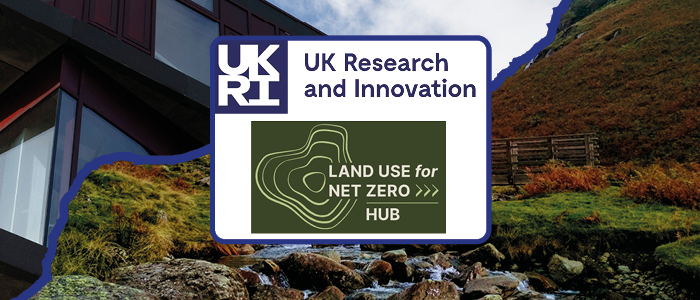HEHTA Part of Research Team Awarded £4.5 Million to Help Achieve the UK's Net Zero Target
Published: 12 November 2024
The award is one of five investments made into UK projects under the LUNZ programme.

HEHTA are part of a University of Glasgow-led research team that has been awarded £4.5 million over three years by UK Research and Innovation (UKRI) and government partners as part of the Land Use for Net Zero (LUNZ) Research programme. This award is one of five investments made into UK projects under the LUNZ programme as part of their broader mission to provide the UK Government with rapid evidence to develop policies that will drive the land transformation needed to achieve Net Zero by 2050.
Rapid Engagement with Stressed Peatland Environments and Communities in Transformation (RESPECT) is a collaboration between the University of Glasgow, and the Universities of Newcastle, Hull and Stirling, that brings together expertise in law, archaeology, ecology, economics, and environmental geography. The group work to produce data, methods, landholder tools, and proposals for governance reforms to change agricultural practices on peatland, and reduce emissions from land use.
HEHTA will contribute to the RESPECT project through Dr Katherine Simpson, who will be using her expertise in discrete choice experiments (DCEs) to assist the team in their assessment of stakeholders' willingness to engage in restoration by examining factors like contract terms, monitoring requirements, social expectations, and incentive structures. Parallel experiments will also identify the community benefits these groups hope to achieve, including recreational access, biodiversity, historic preservation, and sustainable food production.
Dr Katherine Simpson, Lecturer in One Health and Environmental Economics with HEHTA, University of Glasgow, said: “This is an exciting opportunity as an emerging research area for HEHTA within the broader College Futures Theme of Planetary Health. As a co-work package lead, alongside a newly recruited research associate, we will be evaluating the social and economic capacity of land stakeholders to participate in peatland restoration efforts in key regions, aligning with the goals of NetZero 2045.”
“Our work here seeks to understand both the financial and intrinsic motivations of landholders—such as landowners, managers, farmers, and crofters—as well as the perspectives of wider community groups including agricultural workers, local residents, environmental organizations, and recreational users.”
The research will be complemented by qualitative methods, including walking interviews with landholders and community members, and scenario workshops designed to explore sustainable pathways for peatland restoration. Workshops will feature interactive activities, allowing participants to envision solutions that are socially, economically, and environmentally sustainable. The insights gathered will inform future policies, ensuring that restoration efforts align with local needs and provide lasting benefits to the community.
View the University of Glasgow’s full press release on RESPECT’s award here: https://www.gla.ac.uk/news/headline_1127119_en.html
First published: 12 November 2024
<< News

